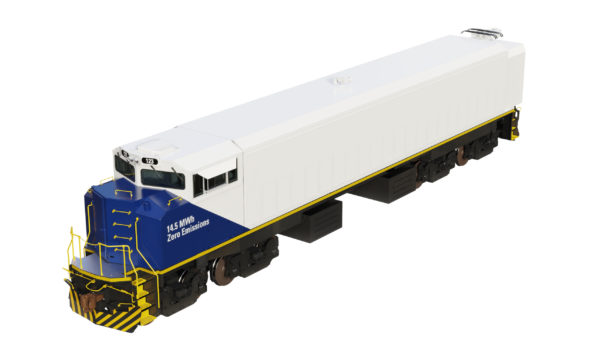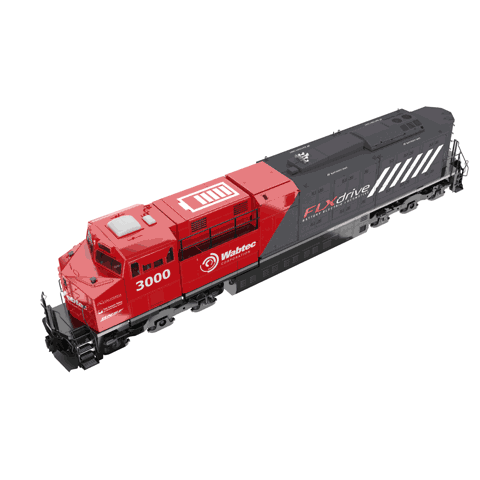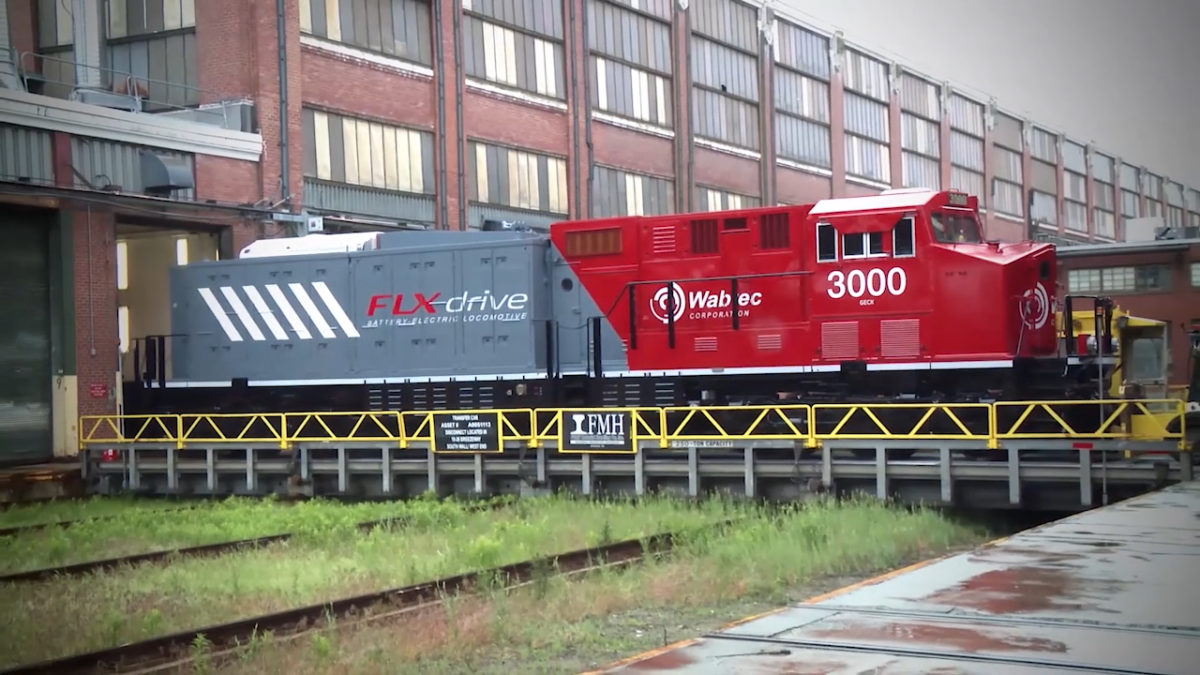With mining and resource companies scrambling for decarbonisation pathways, three of the world’s biggest players have announced they will purchase battery-electric locomotives in quick succession of one another.
On Monday, BHP group announced it would purchase four battery-electric locomotives, two from Progress Rail, owned by mining and construction equipment giant Caterpillar, with another two from Wabtec Corporation.
Less than a week earlier, Rio Tinto announced it would buy four battery-electric trains from Wabtec which, like BHP, it plans to use for its iron ore operation in the Pilbara region of Western Australia (WA).
Fortescue Metals will purchase just two electric trains for its operations – presumably also in Western Australia, though the company did not specify.
The wave of announcements come after Gina Rinehart-controlled company Roy Hill announced it had purchased Wabtec’s FLXdrive battery-electric train with an energy capacity of 7 MWh for its Pilbara operations back in September 2021.

Progress Rail
The purchase of these initial trains seems to mark the beginning of trials with battery-electric locomotives for all these miners, a number of which flagged that they would also be testing ‘energy recapture’ opportunities.
Both BHP and Rio Tinto estimate that transitioning their entire fleet of rail locomotives would reduce their carbon emissions in the Pilbara by around 30% annually.
BHP to trial both Progress Rail & Wabtec’s tech
Consistently topping the list of the globe’s biggest mining companies, BHP Group seems to be hedging its bets, placing orders with both Progress Rail and Wabtec. From Progress Rail the company will receive two EMD Joule locomotives which have a 14.5 MWh battery capacity. From Wabtec, it will get two FLXdrive battery-electric locomotives.
The four locomotives are scheduled for delivery in late 2023, with BHP saying the trials to be conducted with them will support the planned electrification of its iron ore fleet of more than 180 locomotives.
“By working with two global leaders in Progress Rail and Wabtec, we can broaden the scope of our trials and be better informed as we prepare for the planned replacement of our diesel-powered iron ore rail fleet,” BHP Group Procurement Officer, James Agar, said.

The trains will deliver iron ore from BHP’s Pilbara mines to the Port Hedland export facility, with the company testing performance and emissions reduction capabilities. According to the company, its fully-laden iron ore trains in WA typically comprise of four diesel-electric locomotives pulling around 270 cars carrying a total of 38,000 tonnes of iron ore.
“The trials will also test unique ‘energy recapture’ opportunities using the rail network’s natural topography to further reduce the trains’ overall power demand,” BHP’s announcement said. “On the way to port, locomotives can capture energy from braking on downhill slopes (energy that would otherwise be lost) and use it to help power empty trains back to the Pilbara.”
BHP has previously announced partnerships with Caterpillar and Komatsu to develop zero emissions haul trucks.
Rio Tinto
Like BHP and Roy Hill, Rio Tinto will be purchasing Wabtec’s 7 MWh FLXdrive battery-electric train. It’s hoping to start its initial trials with the new locomotives in early 2024.
The company plans to recharge its four new trains at purpose-built charging stations to be located at either the port or at its mining sites. Like BHP, it will also be looking to generate additional energy while its trains are in transit through a regenerative braking system which takes energy from the train and uses it to recharge the onboard batteries.
Fortescue
Fortescue has decided to go with Progress Rail’s train, which appears to have almost double the capacity of Wabtec’s, claiming 14.5 MWh. The two BE14.5BB locomotives will be manufactured at the Progress Rail facility in Sete Lagoas, Brazil.
“The purchase of these new battery powered locomotives marks an important milestone… as we diversify from a pure play iron ore producer to a green renewables and resources company,” Fortescue CEO Elizabeth Gaines said.
This content is protected by copyright and may not be reused. If you want to cooperate with us and would like to reuse some of our content, please contact: editors@pv-magazine.com.









Interested in all articles relating to electric locomotives and the transporting of minerals from the different larger mining companies.
Thank you,